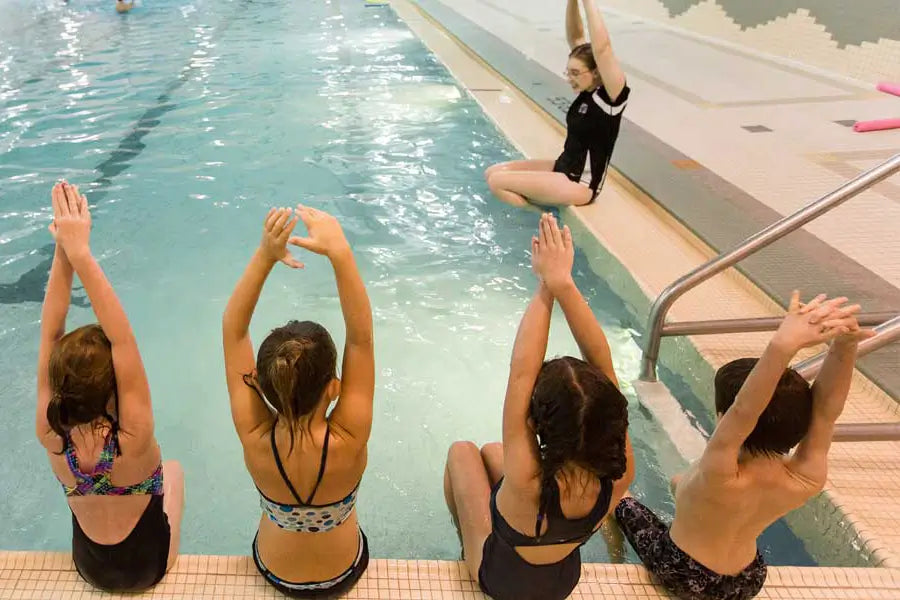Overcoming Common Swimming Challenges
Swimming is a unique and multifaceted sport that involves both physical prowess and mental fortitude. Whether you're an aspiring swimmer or a parent supporting a child's swimming journey, it's common to encounter a variety of challenges along the way. This blog post will explore some of the most common swimming challenges and provide practical solutions to overcome them.

1. Fear of Water
It's perfectly normal for beginners, especially children, to have some fear of water. This fear can stem from unfamiliarity or previous negative experiences.
Solution: Gradual exposure to water in a safe and controlled environment can help alleviate this fear. Start with water play, progress to shallow water activities, and then gradually introduce swimming techniques. Also, remind them that there's always a lifeguard or instructor present for their safety. Over time, familiarity and confidence in the water will grow.
2. Breathing Difficulties
Breathing in swimming requires a unique technique different from other sports. Some swimmers struggle with coordinating their strokes with breaths, which can result in discomfort and exhaustion.
Solution: Practicing specific breathing drills can help. For example, try swimming with your head above the water and focus solely on your breathing technique. Use poolside breathing exercises to mimic the breathing rhythm of different strokes. Over time, the coordination between stroke and breath will become more natural.
3. Lack of Stamina
Swimming is a demanding sport that requires endurance. Swimmers, particularly novices, often find their energy depleting quickly during training or competitions.
Solution: Consistent training is key to building stamina. Incorporate different types of workouts, including interval training and long-distance swims. Additionally, proper nutrition and hydration can significantly impact energy levels. Aim for a balanced diet rich in proteins and complex carbohydrates, and don't forget to hydrate before, during, and after training.
4. Difficulty in Perfecting Techniques
Each swimming stroke is complex, and mastering them requires understanding their intricacies. Some swimmers may struggle with specific strokes or techniques, such as turns and dives.
Solution: Regular, focused practice is crucial for mastering techniques. Break down each movement of the stroke and practice them separately. Use training aids like kickboards or pull buoys if needed. Remember, it's important to get feedback from a coach or instructor to ensure the correct techniques are being practiced.
5. Pressure and Performance Anxiety
Competitive swimming can come with significant pressure to perform, leading to performance anxiety. This can impact both a swimmer's enjoyment of the sport and their performance.
Solution: Psychological training, like visualization and relaxation techniques, can help manage pressure and anxiety. Encourage a healthy perspective towards competition; it's not just about winning, but also about personal growth and enjoyment. Parents and coaches should provide positive reinforcement and help set realistic, achievable goals.
6. Balancing Swimming with Other Responsibilities
For swimmers juggling school, other activities, and swimming can be overwhelming.
Solution: Time management skills are essential here. Help younger swimmers to create a balanced schedule that includes time for schoolwork, training, rest, and leisure activities. Remember, it's important to maintain a balance to avoid burnout.
At Reddiset, we know swimming is a rewarding and enriching sport. While it does come with its fair share of challenges, remember that each hurdle offers an opportunity to grow and improve. Whether you're a swimmer or a parent of one, understanding these common challenges and knowing how to overcome them can help make the swimming journey smoother and more enjoyable.
If you need help along the way in your swimmer's journey, reach out to us and we can put you in contact with resources to help you succeed.
Happy swimming!

